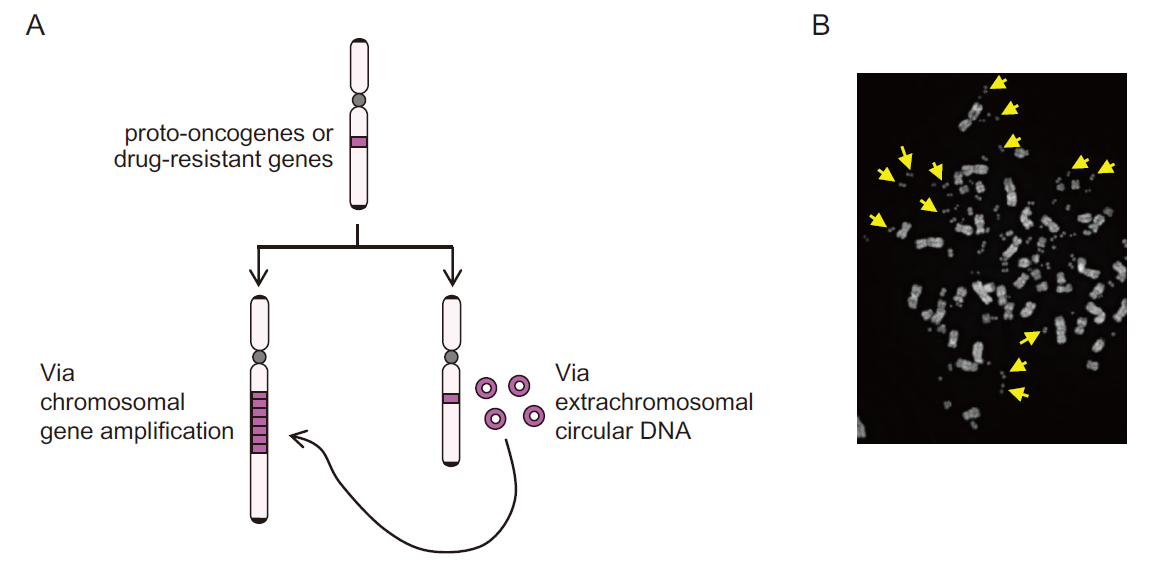Sasaki Group • Laboratory of Gene Quantity Biology
Molecular mechanisms and functions of extrachromosomal circular DNAs in eukaryotes
Faculty
Research Summary
Eukaryotic cells encode genetic information on linear chromosomes. However, cancer cells often accumulate extrachromosomal circular DNAs that are derived from chromosomes. Having proto-oncogenes and drug-resistant genes, these circular DNAs are thought to drive the onset and progression of tumorigenesis and confer resistance to chemotherapy. Furthermore, different types of circular DNAs have been observed in normal human cells as well as in other organisms but their biological significance remains unclear. In our laboratory, we aim to understand molecular mechanisms underlying formation of various extrachromosomal circular DNAs and their functions.

Selected Publications
Sasaki M, Kobayashi T. Transcription near arrested DNA replication forks triggers ribosomal DNA copy number changes. Nucleic Acids Res. 2025 Jan 24;53(3):gkaf014.
Sasaki M, Kobayashi T. Regulatory processes that maintain or alter ribosomal DNA stability during the repair of programmed DNA double-strand breaks. Genes Genet Syst. 2023 Sep 30; 98(3):103-119.
Sasaki M, Kobayashi T. Ctf4 Prevents Genome Rearrangements by Suppressing DNA Double-Strand Break Formation and Its End Resection at Arrested Replication Forks. Mol Cell. 2017 May 18;66(4):533-545.e5.
Yokoyama M, Sasaki M, Kobayashi T. Spt4 promotes cellular senescence by activating non-coding RNA transcription in ribosomal RNA gene clusters. Cell Rep. 2023 Jan 31;42(1):111944.
















